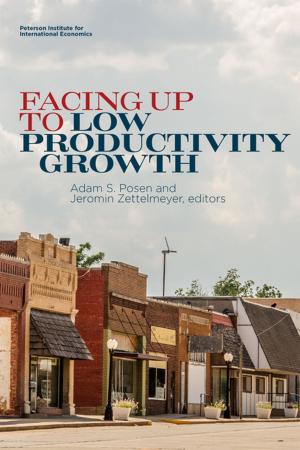The Insurance Aftershock:The Christchurch Fiasco Post-Earthquakes 2010-2016
Business & Finance, Industries & Professions, Insurance, Nonfiction, Social & Cultural Studies, Political Science, Politics, Economic Policy| Author: | Sarah-Alice Miles | ISBN: | 9780473350116 |
| Publisher: | Sarah-Alice Miles | Publication: | March 12, 2016 |
| Imprint: | Smashwords Edition | Language: | English |
| Author: | Sarah-Alice Miles |
| ISBN: | 9780473350116 |
| Publisher: | Sarah-Alice Miles |
| Publication: | March 12, 2016 |
| Imprint: | Smashwords Edition |
| Language: | English |
There has been much media activity both in the press and on Radio since the Canterbury earthquakes in September 2010 and February 2011.
The five-year aftermath of those earthquakes offered the Author a rare opportunity to examine aspects that the media did not cover, such as the national policies and effectiveness of Government funding and management of catastrophe on a national scale. She was also able to make an appraisal of the performance of the Corporate insurance industry involved in the event.
Her findings are both surprising and disturbing.
This is not a book about idealistic sociological concepts, but a revelation of actual Government administrative failure and financial risk-taking, in concert with corporate malfeasance. It is a book that paints a picture that the NZ Treasury would rather not see. The book discloses the failures and fallacies of current disaster management strategies such as funding, insurance and re-insurance - not only in terms of the huge financial implications but also the effects these aspects have on the ‘recovery’ phase.
The Author examined international experiences of catastrophe from the viewpoint of government policies and funding strategies. She points to a fundamental conflict of interest between corporatism and the need for rapid recovery in the interests of both the affected public, business interests and the economy. Woven into the Government strategy are assumptions about the Corporate insurance industry as a ‘partner in recovery’ but the Author’s investigations into the performance of this industry uncover a cynical disregard for both the economic recovery needs and the plight of the population, in the interests of maximizing corporate profits.
She explores the history of catastrophes in other countries and concludes that the culture of betrayal and avoidance by the global insurance industry is widespread.
There has been much media activity both in the press and on Radio since the Canterbury earthquakes in September 2010 and February 2011.
The five-year aftermath of those earthquakes offered the Author a rare opportunity to examine aspects that the media did not cover, such as the national policies and effectiveness of Government funding and management of catastrophe on a national scale. She was also able to make an appraisal of the performance of the Corporate insurance industry involved in the event.
Her findings are both surprising and disturbing.
This is not a book about idealistic sociological concepts, but a revelation of actual Government administrative failure and financial risk-taking, in concert with corporate malfeasance. It is a book that paints a picture that the NZ Treasury would rather not see. The book discloses the failures and fallacies of current disaster management strategies such as funding, insurance and re-insurance - not only in terms of the huge financial implications but also the effects these aspects have on the ‘recovery’ phase.
The Author examined international experiences of catastrophe from the viewpoint of government policies and funding strategies. She points to a fundamental conflict of interest between corporatism and the need for rapid recovery in the interests of both the affected public, business interests and the economy. Woven into the Government strategy are assumptions about the Corporate insurance industry as a ‘partner in recovery’ but the Author’s investigations into the performance of this industry uncover a cynical disregard for both the economic recovery needs and the plight of the population, in the interests of maximizing corporate profits.
She explores the history of catastrophes in other countries and concludes that the culture of betrayal and avoidance by the global insurance industry is widespread.















